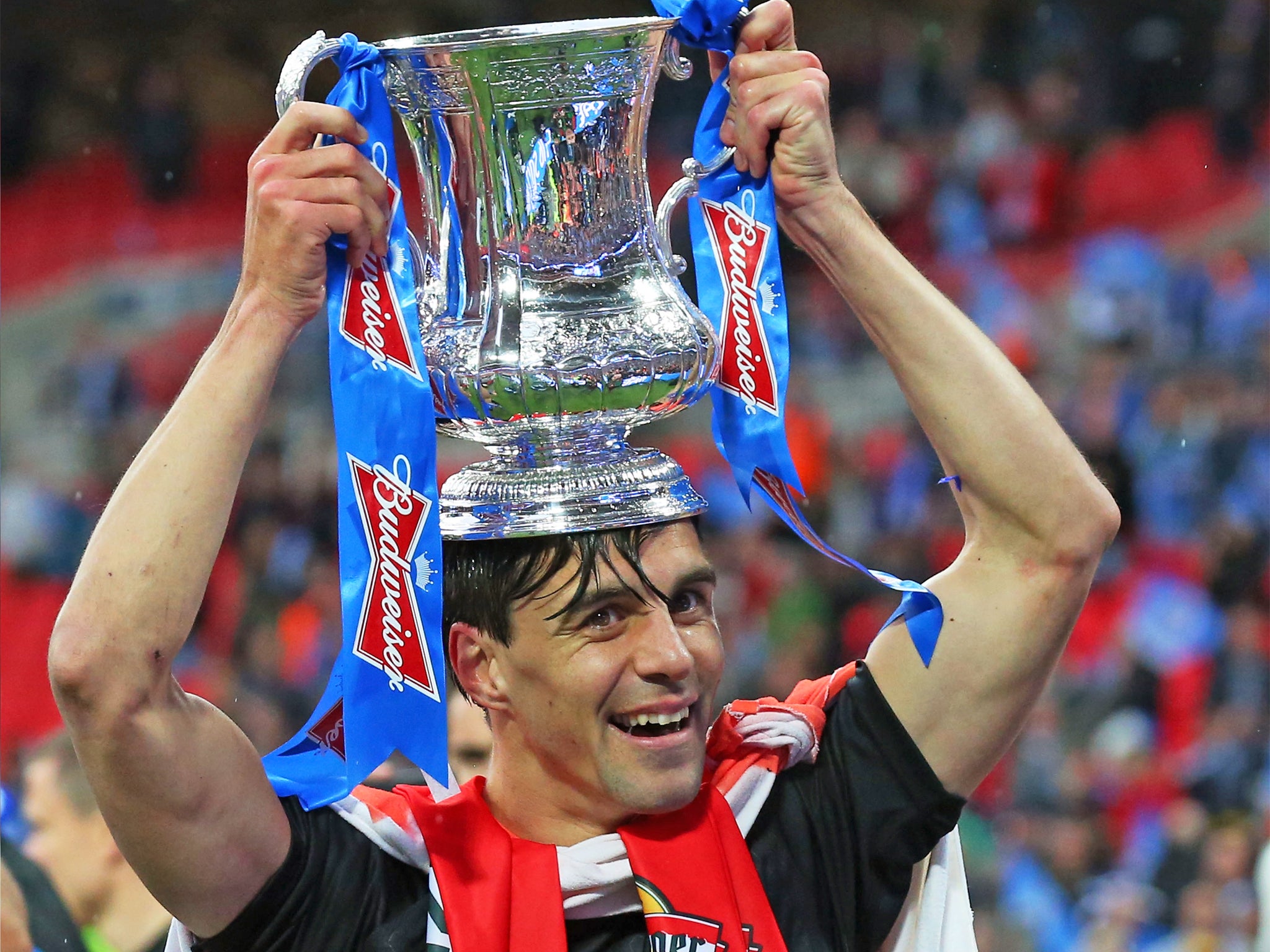Here for the beer? How football fans are drenched in adverts for drink
Study finds that average televised match has 111 visual references to alcohol per hour

Children watching a televised football match at home are exposed to alcohol advertising twice every minute on average, according to researchers who believe that the findings support the need for mandatory restrictions on the marketing of drinks in sport.
A study of televised football matches in six of the major competitions in Britain has revealed that there were typically 111 visual references to alcohol for every hour of football that was broadcast.
This included glimpses of images displayed on pitch-side billboards or other references during replays or when scores were shown or substitutions were being made, said Andy Graham, a speciality registrar in public health with the NHS.
“Our findings show that young people are likely to be hugely exposed to alcohol marketing during televised football matches, and this is likely to have an influence on their attitudes to alcohol,” Mr Graham said.
“We were surprised by just how many images there were during these games: it was a constant bombardment,” he told the British Science Festival in Newcastle.
During the 18 hours of televised football included in the study there were 2,042 visual references to alcohol of various types, but mainly beer. There were 32 verbal mentions of alcohol, such as the names of drinks companies sponsoring the match or competition, and 17 drinks adverts during the match.
“We wanted to see how much alcohol advertising there is in televised football matches in this country. This is the first study in the UK to do this that we are aware of,” said Jean Adams, senior lecturer in public health at Newcastle University.
“Alcohol marketing is big business and we know that kids in particular are affected by it. Children who don’t drink but are exposed to alcohol advertising are more likely to start drinking earlier in their lives and children who do drink are more likely to drink more,” she told the Science Festival.
“Kids are very aware of this stuff. One survey of 13-year-olds found that 96 per cent of them are aware of alcohol marketing, and alcohol marketing in football matches matters because it’s a hugely popular spectator sport,” she added.
The drinks industry spends about £200m a year on advertising and another £600m on other kinds of marketing, such as sport sponsorship.
A voluntary code of practice that limits what the industry does in sport does not work and mandatory regulations should be considered, Dr Adams said.
“Insider documents from the alcohol industry show just how much the industry is flaunting its own regulations, so I think we need to consider more enforceable regulations,” Dr Adams said. “[The voluntary system] does nothing to combat or reduce the constant bombardment of very simple branding we see throughout the matches that we know is harmful to our children,” she told the festival.
“Current regulation is focused on alcohol advertising and it seems that this is not the main thing that people are exposed to,” she added.
“I certainly think [restrictions on alcohol marketing in sports] should be considered... Like tobacco, where we’ve had a widespread bunch of regulations restricting marketing, sponsorship and advertising, that needs to be considered for alcohol,” she said.
Liquid football: The sponsors
* Carling sponsored the English Premiership (as was), currently the wealthiest league in the world, for eight of the first nine years of its existence.
* Fifteen of the 20 teams in the league had alcohol brands as official sponsors.
* Manchester United, the richest sporting club in the world, signed a three-year sponsorship deal in 2010 with Singha beer, aimed at “engaging the club’s fans around the world”.
* The Uefa European Championship of 2004 was sponsored by Carlsberg, which grew its global brand by about 6 per cent as a result.
* Of the 32 verbal alcohol references recorded by researchers in six matches, 28 were due to naming of sponsors, such as the Carling Cup or the Budweiser FA Cup.
* The remaining four were references to “hangovers” in the commentary, such as a comment by one ex-footballer that the winners would all have hangovers in the morning.
Subscribe to Independent Premium to bookmark this article
Want to bookmark your favourite articles and stories to read or reference later? Start your Independent Premium subscription today.

Join our commenting forum
Join thought-provoking conversations, follow other Independent readers and see their replies